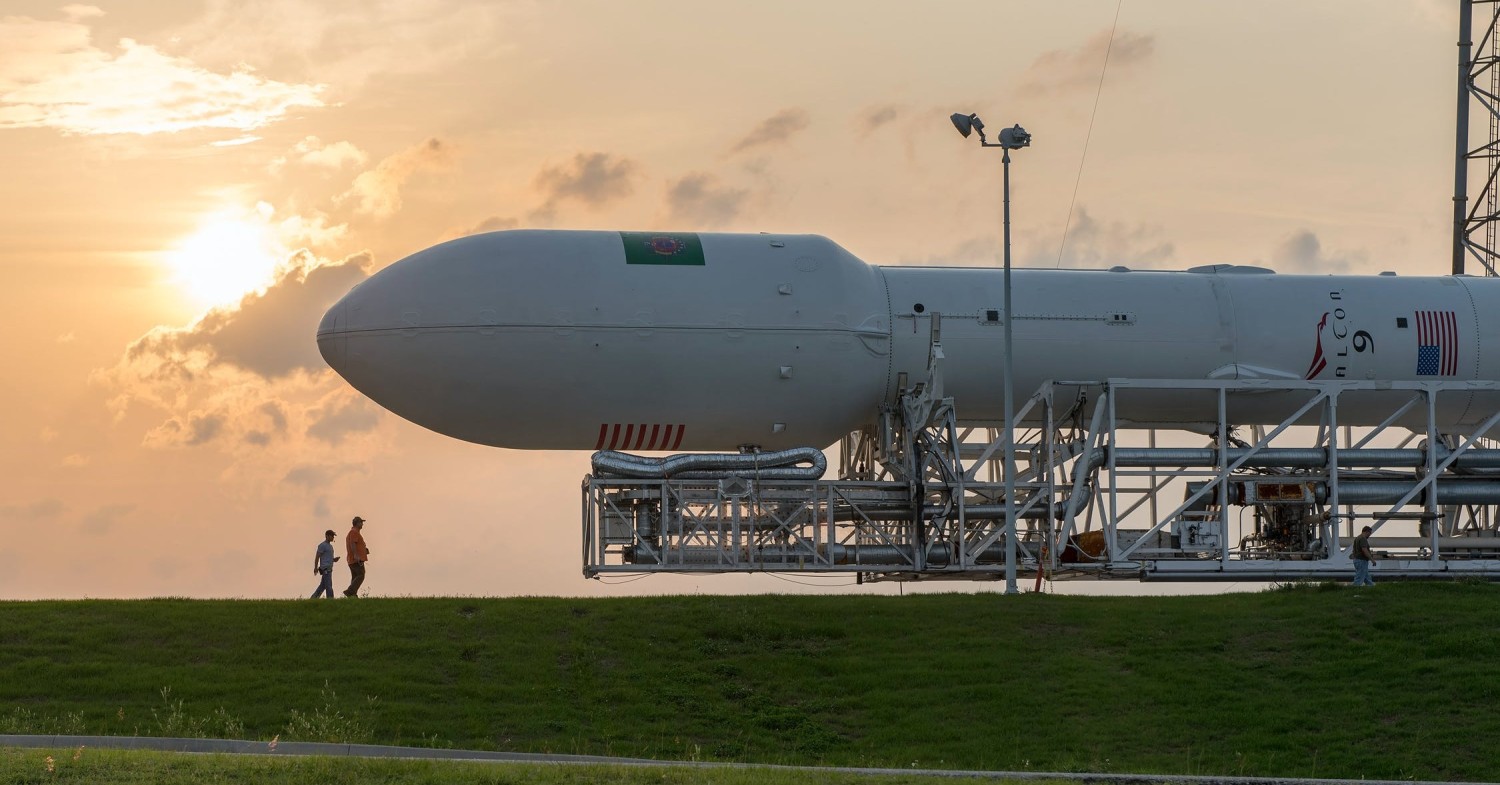
What is a Military-Friendly Gold School?
Some institutions are better positioned to support the military community [...]

Many business professionals looking to move up the ranks ponder whether to get an MBA. They ask: will this graduate degree boost my career prospects significantly? And if so, should I pursue a general MBA or should I go for an MBA that focuses on an area of specialization?
Plenty of MBA specializations exist, with more entering the field regularly. The aerospace and defense (A&D) pathway is among the relatively new and less-known options. Even so, the A&D industry brought in nearly $700 billion in revenue as of 2019, so it’s unquestionably an industry worth considering. Faced with an aging work population, industry leaders are looking for the next generation of knowledgeable, qualified professionals to lead the field forward.
Who needs an Aerospace and Defense MBA? Could this degree be right for you? Keep reading to find out. This article also addresses:
Let’s say you’re thinking about getting an MBA but want to focus your studies on aerospace and defense. Before The University of Tennessee-Knoxville’s Haslam College of Business and The University of Oklahoma’s Price College of Business began offering this specialization, you would not be able to combine the two in a single degree.
Earning an A&D MBA enables students to develop important business skills in areas of decision making, partnerships, human resources, program management, supply chain management, and process improvement while also tailoring that knowledge to the aerospace & defense (A&D) industry. These degree programs teach these concepts in the context of A&D issues, challenges, and real-world case studies and projects.
While both ADMBA programs target professionals with some business experience, students come from many walks of life. Active military members frequently decide to pursue an aerospace & defense MBA, as do operations directors, supply chain managers, and even engineers looking for leadership development opportunities. Some even come from businesses outside the A&D space; they see the opportunities it presents and want to transfer their business skills to a new and rewarding field. The common denominator for all learners is that they want to improve their business qualifications and advance their careers in aerospace and defense.
Aerospace & defense MBA programs mirror traditional MBAs in many ways. Students who enroll in a traditional MBA can expect to take classes in such cornerstone business topics as organizational behavior, financial management, mergers and acquisitions, supply chains and logistics, and data analytics. Each of these courses provide the necessary training valued in any professional setting, but ADMBA programs like those offered at The University of Tennessee-Knoxville (UTK) and The University of Oklahoma (UO) business schools take it a step further by teaching students how to apply these skills to aerospace and defense conditions.
tudents can also anticipate taking courses designed specifically for the industry, including studies in information technology and aerospace & defense, global aerospace and defense strategy, and managing aerospace & defense government contracts, in addition to general courses.
At OU, students participate in an Executive MBA in aerospace & defense that requires applicants to possess at least five years of professional business experience. UTK’s program hovers between traditional and executive programming and looks for candidates who can demonstrate evidence of “significant professional achievement and increasing responsibility.”
Both programs take one year to complete and presume an intermediate mastery of at least some aspects of business. These programs are not for those who only just finished their bachelor’s degrees or are in entry-level positions.
| University and Program Name | Learn More |
|
Pepperdine University:
Online Master of Business Administration
|
|
|
Stevens Institute of Technology:
Online Master of Business Administration
|
|
|
Merrimack College:
Master of Science in Leadership
|
|
|
Merrimack College:
Master of Science in Management
|
|
|
The University of Tennessee:
Online Master of Business Administration
|
Professionals from myriad industries and settings decide to pursue an aerospace and defense MBA; while they may plan to use it in different ways, each shares the goal of better understanding the business functions of the discipline. We take a closer look at some common student profiles in this section.
Branches of the military may not specifically require their leaders to hold an MBA for any positions currently, but that does not mean the armed forces or its members cannot benefit from this credential. The military contracts with private businesses to produce fighter jets, helicopters, and many technologies that contribute to U.S. defense efforts. Earning an ADMBA ensures those working in areas of acquisitions and contracts, supply chain, financial management, and data analytics possess the specialized knowledge to oversee these processes.
As with military leaders, professionals working for private and public A&D companies can benefit from combining advanced business acumen with a deeper understanding of their industry. Many individuals start working in this field and, after a few years, decide to update their credentials to seek more challenging, senior-level roles. In just 12 months, they can earn a Master of Business Administration in A&D and work to further their career goals.
Engineers already possess the technical knowledge needed to work in aerospace and defense, but some may aspire to harness business skills as well. For these professionals, earning an aerospace & defense MBA allows them to explore and compete for managerial positions (many of which can be far more lucrative than their current roles).
The Bureau of Labor Statistics collects annual data on median salaries for a wealth of positions, including those related to engineering. In 2021, mechanical engineers earned median salaries of $95,300. While this figure sits far above the national average for all occupations combined, it does not represent a salary maximized by business acumen. For those who decided to pursue engineering manager positions, median salaries reached $152,350. Managers in the top 10 percent of earners took home more than $208,000 in 2021.
For engineers who want to expand their skill sets and increase their salaries, an ADMBA provides the perfect next step.
As detailed earlier on this page, neither UTK nor OU accept applicants with little to no experience under their belts. That said, candidates with around five years of professional work history who are still in the early stages of their careers can greatly benefit from the knowledge and credentials provided by an aerospace & defense MBA program. While it is possible to build expansive business knowledge over the course of a long career, many younger professionals see the ADMBA as a way of accelerating their progress and moving into better positions more quickly.
Data seems to back up this line of thinking, as The University of Tennessee – Knoxville reports that 88.7 percent of aerospace and defense MBA graduates received a promotion within two years of earning their diploma.
For many, earning an MBA is the next logical step after breaking into the professional world and finding their footing. Because a wide spectrum of MBA concentrations exist these days, those who decide to return to school can choose from varied options and specialize their knowledge in areas aligned with their career goals. For professionals who want to work in the A&D industry, earning an MBA with this type of specialization makes a lot of sense.
This field is poised to grow in the coming years, with many leaders aging out of their positions. Those vying for these roles should pursue every advantage to maximize their options and their desirability. An A&D MBA demonstrates a high skill level and a commitment to the discipline of understanding the nuanced needs within the field. For those who already work in A&D but want to branch into other areas (e.g., engineers, project managers, quality assurance professionals, etc.), an ADMBA increases their skill sets to better qualify them for leadership positions. In the case of active military service members and veterans, earning this degree provides opportunities both within and beyond the armed forces.
Because both ADMBAs currently offered in the U.S. take only 12 months to complete and were developed with working professionals and military members in mind, adding this degree to your resume can be done flexibly and quickly, making it a great option to consider. If you’re a veteran or active military, you may even be able to get the government to pay for your degree.
(Last Updated on February 26, 2024)
Questions or feedback? Email editor@noodle.com

Some institutions are better positioned to support the military community [...]

You'll meet industry insiders and thought leaders among your program's [...]

Aerospace & defense MBA programs combine online learning and in-person [...]

There are numerous well-paying product manager job opportunities in 2022, [...]

The 8 Keys to Success,created by the DOE, VA, and [...]
Categorized as: Aerospace, Business Administration, Business & Management